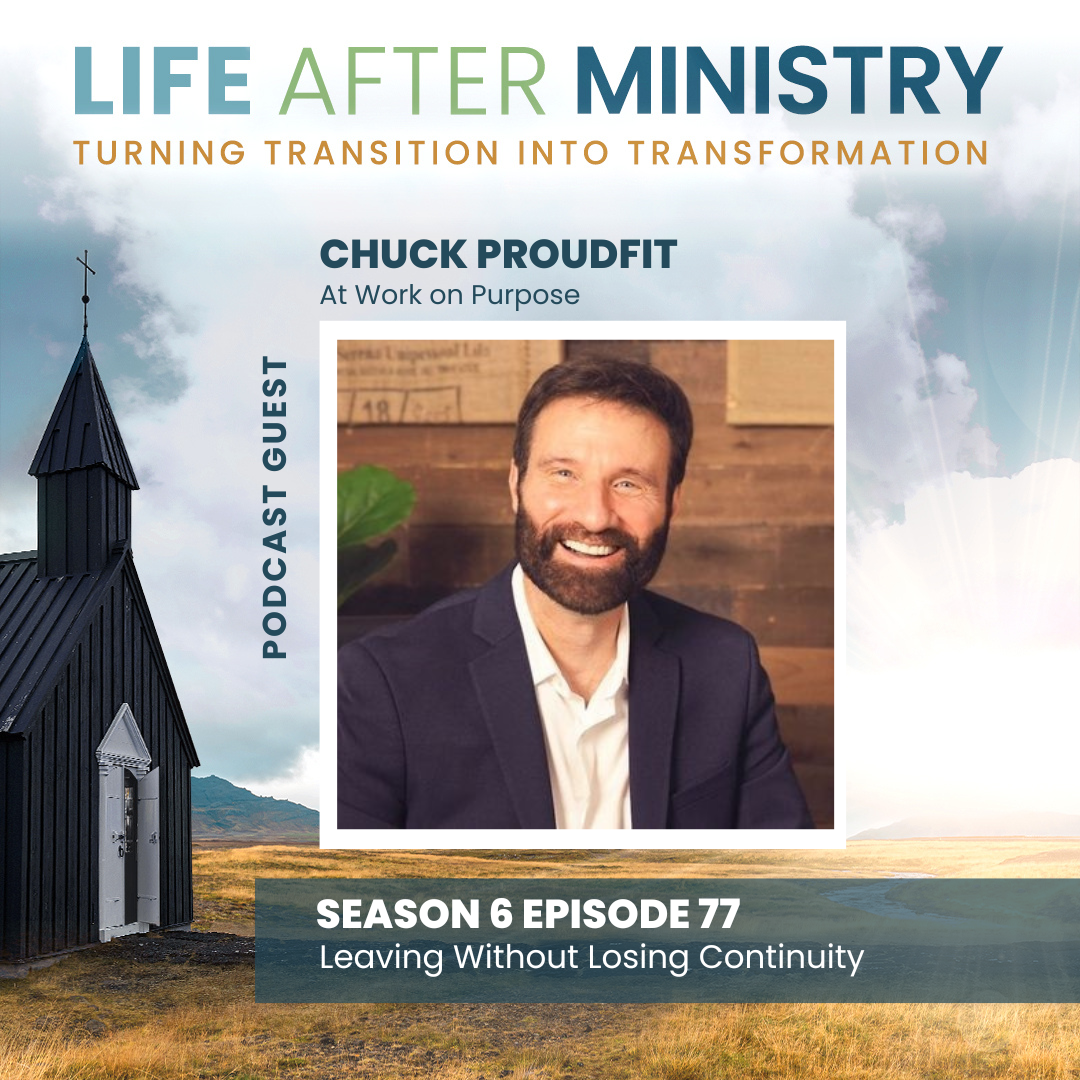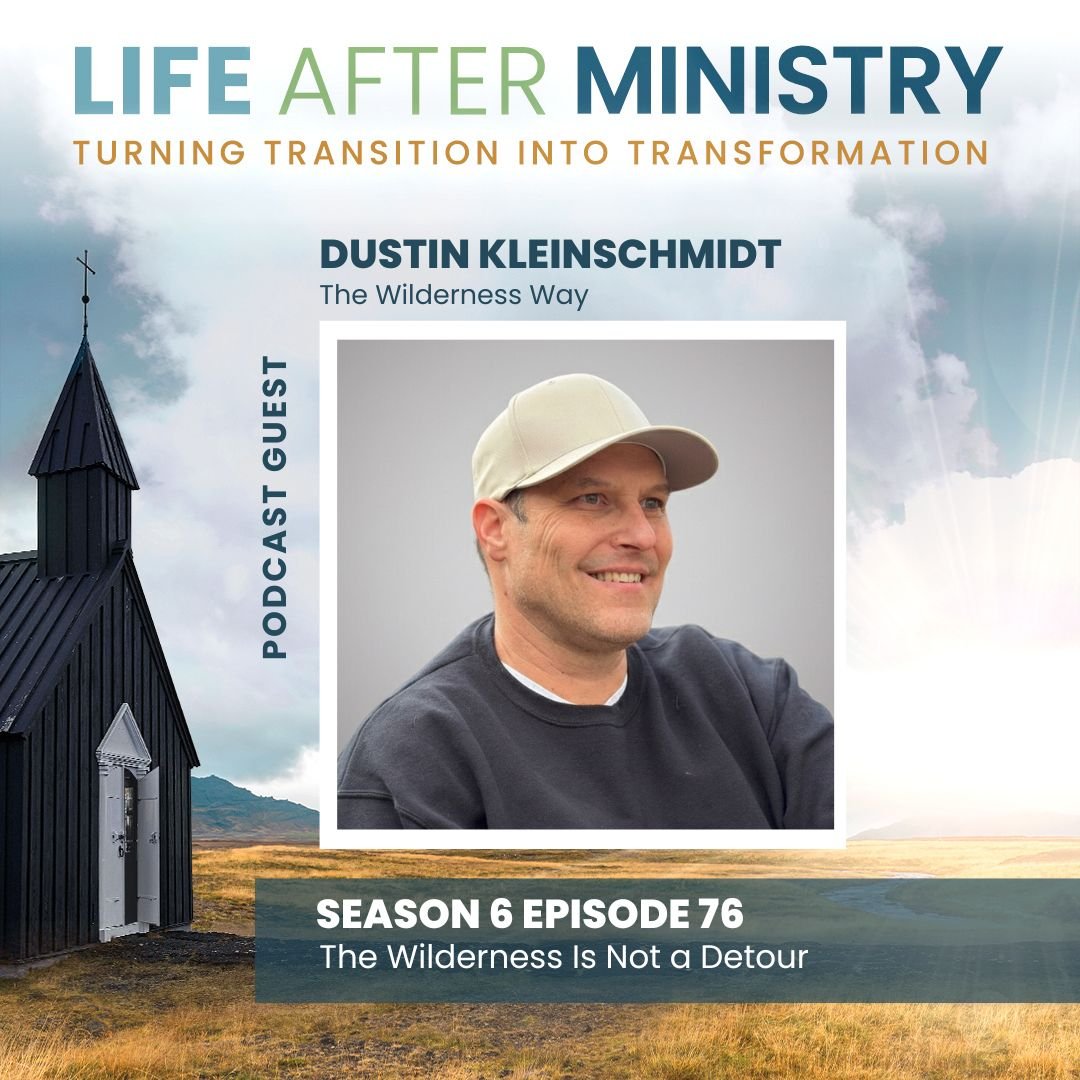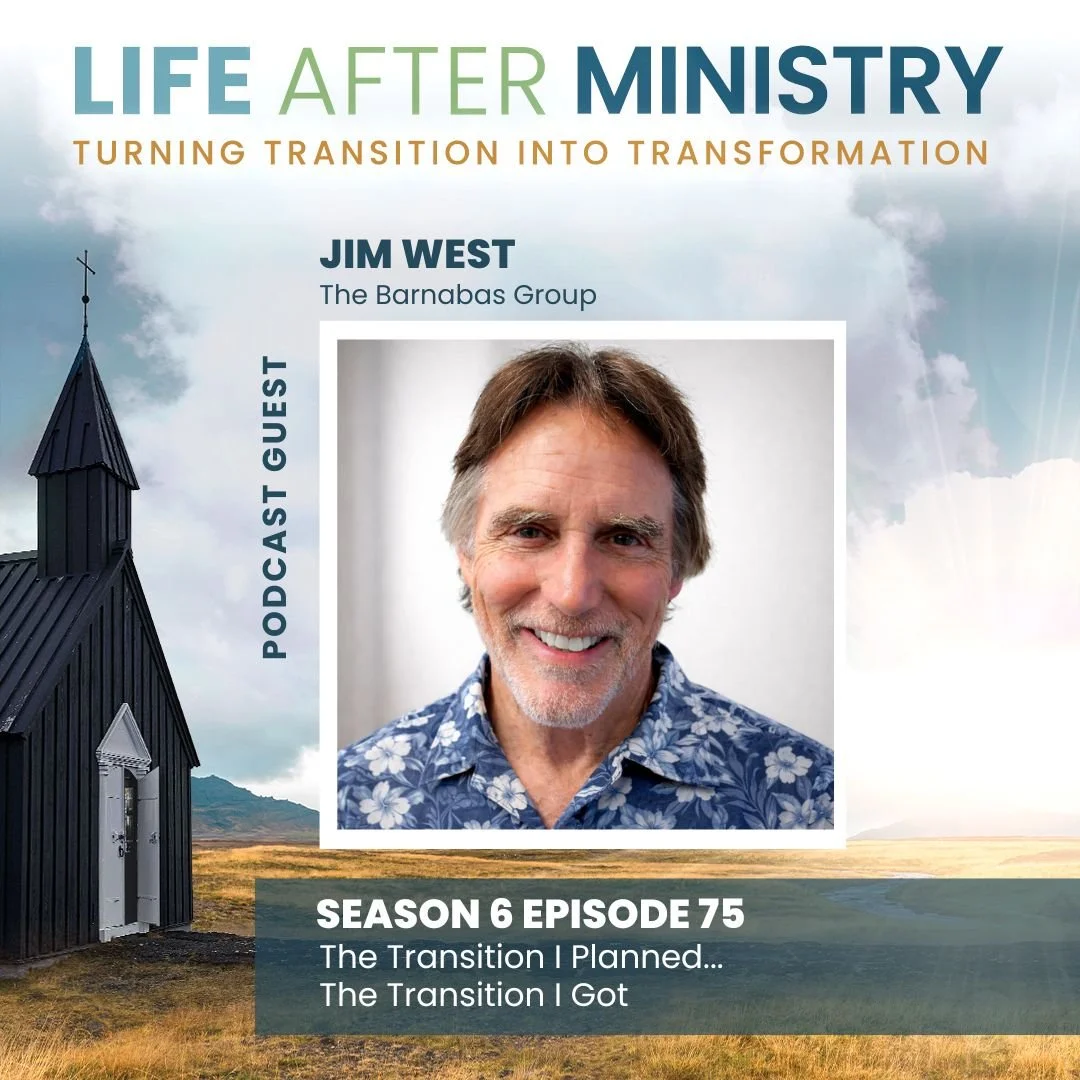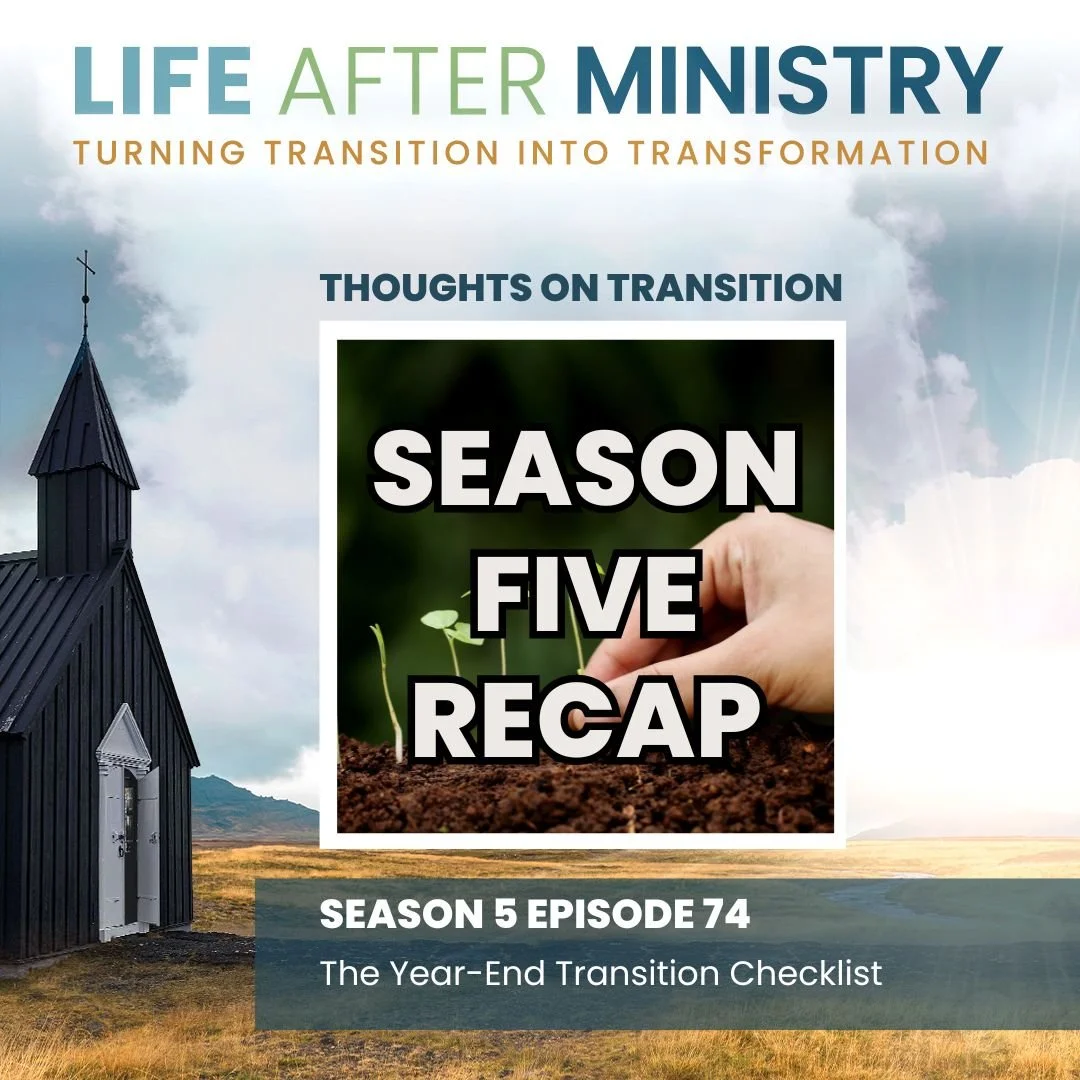When Ministry’s Second Skin No Longer Fits: Identity, Grace, and the Bi-Vocational Way
There comes a moment in ministry when the role that once felt like a second skin begins to suffocate. What used to energize you now leaves you weary. The words come, but they don’t carry weight in your own soul. You notice you’re working harder but sensing less fruit. And underneath it all, the haunting question rises: Who am I if I can’t keep this pace? Who am I if this role slips away?
For pastors, missionaries, and nonprofit leaders, this isn’t failure. It's an invitation. An invitation to recover your identity apart from your role, to receive grace in real time rather than after the fact, and to explore rhythms that actually sustain long-term ministry. Increasingly, one of those rhythms is bi-vocational leadership - not as a penalty, but as a pathway into healthier, more credible, and more durable ministry.
Identity That Cannot Collapse
The deepest crisis for a ministry leader in transition isn’t a budget shortfall or a shrinking attendance graph. It’s identity collapse. When “pastor,” “missionary,” or “executive director” becomes the truest thing about you, every threat to your role feels like a threat to your existence.
Scripture insists otherwise. “You are a chosen people, a royal priesthood, a holy nation, God’s special possession” (1 Peter 2:9). Notice the grammar - these are not achievements but gifts. Identity is received, not earned. You are beloved before you are employed. You are called before you are commissioned. The danger is that we quietly reverse the order: I lead, therefore I matter.
The healthier grammar is: I matter, therefore I lead. And even when I don’t lead, I still matter. This untethers who you are from what you do. It allows you to pause, step back, or take on a new rhythm without losing yourself. It means you can be fully beloved even if you’re no longer on payroll.
Grace in Real Time
The church often preaches grace as something we see in hindsight. Abraham makes it through the test. David repents after the fallout. Peter preaches Pentecost after the rooster crows. We tell the cleaned-up story and call it grace. But grace didn’t wait until the edit. God was present in the middle - before the clarity, before the success.
The same is true for you. Grace is not retroactive. It’s real time. It meets you on the days you can’t muster a sermon, when you sit in the pew instead of standing in the pulpit, when you say out loud, I need help. The gospel is not that God will love you once you bounce back. It’s that he loves you right now, when your hands are empty.
This is why seasons of stepping back - whether for months or years - are not wasted. They’re spaces where grace becomes more than doctrine. They become embodied reality. God isn’t waiting at the finish line. He’s walking at your pace, even if that pace is slower than the one you used to set.
The Wilderness Is Not Wasted
Leaders often fear the wilderness. Israel wandered there. Elijah collapsed under a broom tree there. Jesus was tested there. But over and over, the wilderness proves to be less a punishment and more a classroom. Israel learned dependence. Elijah heard the whisper. Jesus clarified his call.
The wilderness strips away applause, metrics, and production. It teaches you that you’re not indispensable. It teaches you that God can feed you even when you’re not feeding anyone else. And when you emerge, you do so with a kind of authority that doesn’t come from constant visibility, but from having been pastored yourself.
Why Bi-Vocational Ministry Matters More Than Ever
For decades, “full-time ministry” was treated as the gold standard. A pastor or missionary with no outside employment was seen as more committed, more spiritual, more faithful. But the future may not look like the past. Increasingly, bi-vocational ministry - where leaders hold both a church role and a “side hustle” or marketplace job - is not only necessary, but also beneficial.
Here’s why:
1. Shared Rhythms with the People
Most congregants live in a Monday-to-Friday grind. They face deadlines, kids’ schedules, and financial pressures. When pastors also inhabit those rhythms—even for a day or two each week - they shepherd with credibility. Their sermons sound lived-in. Their leadership decisions respect real fatigue. Their compassion comes from shared experience, not observation from afar.
2. Financial Breathing Room
Church budgets are often stretched thin. Carrying multiple full-time salaries can leave ministries vulnerable. A bi-vocational model reduces that strain. A pastor working one or two days a week outside the church creates margin in the budget and opportunity for wider impact. Far from diminishing ministry, this can expand it.
3. Transferable Skills Are Real
Pastors underestimate their skills. Sermon prep is advanced communication. Staff meetings are organizational leadership. Recruiting volunteers is human resources. Counseling is active listening. Fundraising is development. These skills are in demand outside the church, and when exercised there, they return stronger. A pastor who manages projects in the marketplace comes back to church with sharpened capacity. The “side hustle” isn’t just financial—it’s formational.
4. Sustainability and Resilience
Bi-vocational rhythms prevent the all-or-nothing collapse. If a leader must step back from church employment, the marketplace role provides continuity. It reduces the fear that leaving staff means losing everything. It allows identity to stretch without snapping. It makes transitions less traumatic and more humane.
Facing the Lion of Failure
Failure often stands at the door of transition like a roaring lion. If you step back, you’ve failed. If you preach less, you’re less. If you take an outside job, you’ve betrayed the call. But when leaders actually open the door, they find something smaller. Failure is rarely the monster it pretends to be.
Instead, many discover freedom. They realize that stepping back didn’t erase their worth. Preaching less didn’t erase their call. Taking a side hustle didn’t dilute their faithfulness - it expanded it. The lion roars, but when faced, it shrinks.
A Word to Boards and Donors
Boards and donors have power to set the tone. Too often, fear of appearances or loss drives decision-making. But what if love and sustainability were the guiding principles? What if you asked: Are we protecting people? Preserving purpose? Planning for what’s next?
Piloting bi-vocational models doesn’t signal decline - it signals wisdom. Allowing sabbaticals doesn’t weaken mission - it strengthens it. Offering confidential space for leaders to be honest doesn’t risk the church’s future - it secures it.
Your posture can either perpetuate burnout or cultivate resilience. Choose the latter.
Practical Steps Toward a Bi-Vocational Future
Name identity first. Clarify: Who are we in Christ? Why do we exist? Then design roles around that.
Pilot one outside workday. Test it for six months. Define clear “win conditions” and review.
Simplify the calendar. Resist overloading seasons. Anchor on worship, groups, and care.
Empower teams. Train others to lead Sundays without you. Celebrate when they thrive.
Honor sabbath. Bi-vocational is not code for “two full-time jobs.” Protect rest.
Communicate openly. Share the vision with the church. Normalize healthy rhythms.
Hope for Leaders in Transition
If you find yourself in a season where ministry’s second skin no longer fits, hear this: you are not alone. This is not the end of your story. Identity is deeper than role. Grace is faster than failure. And the wilderness is not wasted.
Bi-vocational rhythms, side hustles, and new patterns are not compromises. They’re tools God can use to keep you healthy, keep churches resilient, and keep the gospel moving forward. You don’t have to burn out to be faithful.
The most courageous thing you can do might not be to press harder, but to pause - to let go, to receive, and to trust God to lead you into a new season where who you are matters more than what you do.
With 25+ years in faith-based executive leadership, Matt Davis knows the wins, the losses, and everything in between. As Executive Pastor, he led a team of 140+, tackling the challenges that come with big vision and real impact. As President of Ministry Transitions, he guides churches through tough leadership changes. Matt and his wife, Marilee, host the Life After Ministry Podcast, where they dive into real talk with former pastors who’ve found their kingdom assignment beyond church walls - unfiltered stories of grit, growth, and God’s purpose beyond the pulpit.







